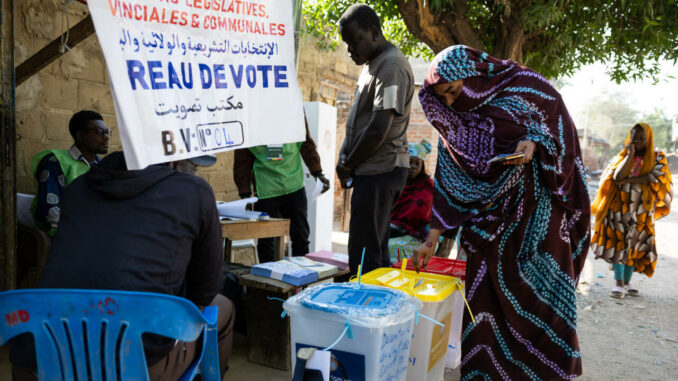
Turnout in Chad’s legislative, provincial, and local elections on Sunday, December 29, remained subdued, with a national participation rate of 38% reported by midday, according to the National Agency for the Management of Elections (ANGE). By the close of polling stations, final turnout figures rose to 52.37%. The elections were marred by an opposition boycott, with critics branding the process a shame.
Succès Masra, leader of the main opposition party, underscored the low participation as evidence of public dissent. “All those who voted massively in the presidential election stayed home following our call, representing the overwhelming majority,” he stated from Abidjan, Ivory Coast. Masra further claimed, “Chadians trust our word, and when we tell them that the results are already fabricated, they know it’s true.”
The opposition’s refusal to participate stemmed from their rejection of what they describe as a flawed electoral process. The government of Marshal Mahamat Idriss Déby Itno, however, presented the elections as the final stage in a transitional process initiated after the April 2021 coup that brought Déby to power following the death of his father. Déby was officially legitimized through a May election.
Despite calls for voter participation, turnout was sparse in districts like Farcha and Ardeb Timane, where government officials and the presidential family reside. Observers reported near-empty ballot boxes in these areas. Déby, describing the event as a “historic day,” used social media to urge citizens to cast their votes.
Higher turnout was observed among specific groups voting a day early, with over 72% participation among military personnel and 54% among nomadic populations. Voting was conducted in 26,617 polling stations nationwide, under the supervision of around 100 foreign observers and party representatives.
The elections took place against the backdrop of Chad’s shifting geopolitical dynamics, including the withdrawal of French forces after the termination of a long-standing military cooperation agreement, persistent Boko Haram attacks in the Lake Chad region, and allegations of Chad’s interference in Sudan’s ongoing conflict. These factors highlight the complex and contentious environment in which the elections unfolded.
